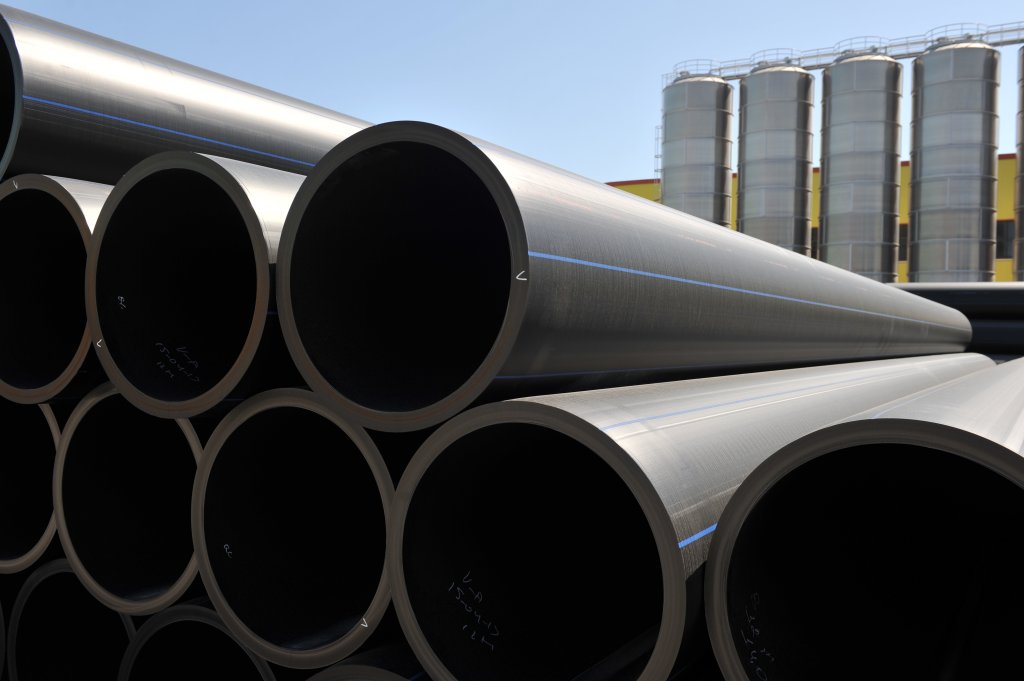Why Pipe Supplier American Plastics Midland Is the Trusted Partner for Contractors
Recognizing the Secret Benefits of HDPE Pipeline for Water and Wastewater Monitoring
Making use of HDPE pipeline in water and wastewater management provides numerous benefits that warrant consideration. Its extraordinary durability and lengthy life-span make it a preferred option for lots of tasks. In addition, the material's resistance to deterioration and chemical damages improves its dependability in various environments. The advantages prolong past simply long life and resistance. hdpe pipe suppliers Midland TX. Exploring its cost-effectiveness and environmental effect exposes even much more compelling factors for its extensive adoption in contemporary infrastructure
Exceptional Resilience and Durability

HDPE pipeline stands out for its exceptional sturdiness and long life, making it a preferred selection in water management systems. Created from high-density polyethylene, these pipes can stand up to substantial pressure and stress and anxiety, making sure trusted performance gradually. Their durable nature enables them to sustain extreme ecological conditions, including temperature fluctuations and dirt activities, which can cause other materials to fall short.
The life-span of HDPE pipelines typically goes beyond 50 years, providing an affordable solution for communities and markets alike. In addition, the product's light-weight homes streamline installment, lowering labor costs and timeframes. This resilience decreases the demand for regular repair services or substitutes, even more boosting its financial allure.
In water monitoring applications, the integrity of HDPE pipes means less interruptions and boosted solution continuity, making them indispensable to sustainable facilities growth. The mix of longevity and longevity solidifies HDPE's duty as a cornerstone in efficient water monitoring solutions.

Resistance to Rust and Chemical Damages
While many products give in to rust and chemical damage gradually, HDPE pipelines show remarkable resistance, making them suitable for different water administration applications. This strength comes from the molecular framework of high-density polyethylene, which is inherently non-reactive and does not rust like steels or break down from direct exposure to severe chemicals. Consequently, HDPE is extremely efficient in atmospheres with aggressive materials, such as wastewater systems that might have acids, bases, and organic solvents.
Furthermore, HDPE pipelines can withstand ecological factors such as soil level of acidity and saline conditions, even more improving their suitability for diverse applications (Pipe Manufacturing Midland TX). Their ability to maintain structural stability over time lowers the risk of leakages and failures, which is essential in making certain the safety and security and integrity of water distribution and wastewater monitoring systems. Consequently, the resistance to deterioration and chemical damage noticeably adds to the total performance and durability of HDPE piping remedies
Cost-Effectiveness and Financial Benefits
When thinking about the economic ramifications of water management systems, the cost-effectiveness of HDPE pipelines becomes obvious. These pipelines use lower installation and upkeep costs compared to conventional materials like metal or concrete. Their light-weight nature simplifies transport and installment, causing minimized labor expenses. Furthermore, HDPE pipelines exhibit a lengthy life expectancy, often going beyond 50 years, which converts to fewer replacements and lasting savings.
The resistance of HDPE to rust and chemical damages reduces the demand for expensive fixings and replacements. The pipes additionally sustain efficient water circulation, lowering energy expenses connected with pumping systems. By reducing leaks and water loss, HDPE pipes add to substantial financial advantages for communities and markets alike. Generally, the first financial investment in HDPE piping can produce considerable monetary returns over the lifespan of the water monitoring system, making it a prudent option for lasting facilities growth.
Environmental Sustainability and Decreased Impact

Versatility and Flexibility in Installation
As a result of their unique residential properties, HDPE pipes provide impressive adaptability and versatility in installation, making them appropriate for a large range of applications. Their light-weight nature enables for easier handling and transport, reducing labor costs and installment time. HDPE pipes can be bent and shaped to fit numerous surfaces and task needs, which is specifically helpful in testing settings.
Additionally, their resistance to rust and chemical damage enables installment in varied settings without the need for specialized safety finishings. The ability to fuse joints produces a continual, leak-free system, improving the general integrity and dependability of the installation. HDPE's flexibility likewise accommodates ground activity, reducing the threat of damage in locations vulnerable to shifting soil. In general, these features make HDPE pipelines not just functional yet likewise a recommended selection for water and wastewater administration systems.
Often Asked Concerns
Exactly How Does HDPE Pipeline Compare to PVC in Water Management Applications?
HDPE pipeline supplies remarkable versatility, resistance to corrosion, and durability contrasted to PVC. check here Its lighter weight facilitates less complicated installation, while its lengthy life-span minimizes replacement costs, making HDPE a recommended option in water administration applications.
What Is the Lifespan of HDPE Pipeline Under Typical Problems?
Under common conditions, HDPE pipelines can have a life expectancy varying from 50 to 100 years. Their longevity and resistance to rust contribute to their long-term efficiency in numerous applications, making them a trustworthy selection for infrastructure.
Are HDPE Water Lines Recyclable After Their Life Span?
Yes, HDPE pipes are recyclable after their life span. hdpe pipe fittings Midland TX. They can be refined and repurposed into new products, considerably lowering ecological effect and promoting sustainability within the industry, making them a green selection for piping solutions
What Is the Installation Refine for HDPE Water Lines?
The installment procedure for HDPE pipelines involves website preparation, trenching, pipe blend or mechanical signing up with, backfilling, and stress screening. Proper techniques ensure a durable and reliable system for moving water and wastewater successfully.
Can HDPE Pipeline Be Made Use Of for Both Safe And Clean and Non-Potable Water Systems?
Yes, HDPE pipes can be made use of for both drinkable and non-potable water supply. Their convenience, resilience, and resistance to rust make them appropriate for different applications, making sure risk-free and effective transportation of water in different contexts.